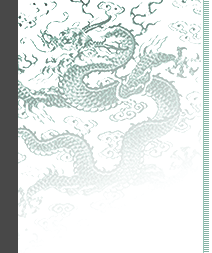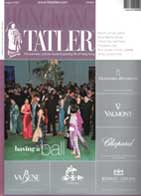


When Hong Kong Tatler tried to track down Andrea Eng, we found ourselves calling New York, and then London but to no avail. We were just about to dismiss her as a figment of the media's imagination, when we finally cornered her in Boston. Even then, however, she was elusive and brief. "I'm working on a Hong Kong deal right now and can't talk to anybody for the next 48 hours," she said. "I'll call you." Best known for her part in high-profile deals linking up Asian money with Western property, Eng is the sort of person who might live according to three different time zones any given week. Consequently, she isn't entirely certain where to call home. For that matter, she can't really say even if she is more Western than Chinese. Her grandparents grew up in China but left to settle in Vancouver. Her father, returning to the mainland for his education, was similarly split between two cultures. But as Eng views it, inheriting such cross-cultural fertilisation isn't altogether a bad thing. "Years ago, I ran into Steve Wyatt in London and we went out to dinner," she recalls. "Halfway through, he suddenly said to me, 'I've figured it out - you look like one of them, but think like one of us.' That's a big part of it. When that first rush of Chinese investors moved into Vancouver, they had a problem adapting. In that sense I am not only a business contact but also a cultural translator." The rush Eng refers to ran throughout the late 80s, when, on average, Hong Kong tycoons were spending upwards of $3 billion a year on real estate in the rainy, coastal city. That investment wave blew into a tsunami when Li Ka-shing purchased the Vancouver Expo '86 lands from the British Columbia government in April 1988. The 84-hectare site comprised one sixth of the downtown core. According to Eng, it was around that time that Victor Li, who was then living in Vancouver and had become a Canadian citizen, first called her. "I was working at Colliers at the time as Vice President," she remembers. "It was completely out of the blue. He had read my property reports and wanted to bring me in to buy peripheral lands." The media had seized on the Hong Kong phenomena as a rich source of stories and soon Eng was making international headlines as the 'broker to the Asian billionaires.' According to a report in the Far Eastern Economic Review, by the close of the decade, Eng had sold over a billion dollars worth of property. "I understand both the value systems, the way each culture frames a deal," she explains. "In real estate, the Asians work on payback, whereas North American institutions are much more analytical. The Asians want a faster turn around. They want to know if it will pay the investment back in three or four years, while North Americans are obsessed with form filling." By the early 90s, however, Eng was overworked and exhausted. She needed a new direction. Her saving grace, she says, came when Richard Li called and asked her to move to Hong Kong. He was in the process of establishing Pacific Century Group. "Initially I said I would just come and join him as a consultant for eight months," she says, "but I ended up staying on for three years." Much of that time however was spent in constant travel, scouring the globe for the next big deal that might attract the his interest. She found it in Toronto. "Richard had sent me out there," she says. "And it was while I was looking through the bad loans portfolio at the Royal Bank that I found it - found it for a steal." The property was 500-550 Queen's Quay West, an underdeveloped site that sat on the edge of Lake Ontario. The entire area has since gone on the become the cultural heart of the city. "The piece was at a fifth of its value in the peak of the market," she says. Eng returned to Vancouver in 1996, to "re-establish my life." But within a few years Hong Kong was calling again. "The Hutchinson side started to call me back," she recounts. Li Ka-shing was putting together Tom.com and, according to Eng, was sourcing from Silicon Valley. "They called me and I offered to help," she says. "My title in that role was advisor to the chairman. I could watch everything that was happening from North America and buy the content and technology that fit their business model." By the time the company made its initial public offering, Eng was once again living in Hong Kong. She stayed on only briefly, until the market soured. Now she divides her time freelancing deals that can happen anywhere, at anytime. When pressed for some tips, she doesn't hesitate. "I'm a contrarian," she explains. "I always buy against what everyone else is buying, just before it takes off. Right now, the area I would buy is probably in Hong Kong luxury property. Only two percent of the stock is luxury and there will always be a demand for that. As the China guys get richer, they will still want their second or third home in Hong Kong, on the Peak or the mid-levels, or in Shek O. It's a question of foresight." She acquired the site in Shek-O for Richard Li's private residence which is currently under construction. - by Dave Major, Features Editor, Hong Kong Tatler website
This month, she's profiled in the glossiest-of-glossies Hong Kong Tatler. But not wearing scarlet. Instead, city photographer Robert Kwong portrayed the long-legged deal clincher in a mauve Jean Paul Gauthier top with black Armani jacket, Claude Montana skirt and matching Gucci pumps. But the good luck continues, even though Tatler reporter Joanne Samms only hinted at Eng's bridging role between mogul Li Ka-shing's rival sons Richard and Victor, for both of whom she scouts international deals. Nor is there mention of Frank Sixt, the former Stikeman Elliott law-firm whiz kid who is now finance director of Li's Hutchison Whampoa firm. Last week, Eng's pal Sixt stick-handled Li and Singapore Telecom's acquisition of the Global Crossings telecommunications firm for $250 million -- three months after creditors rejected an offer of $800 million. Maybe there'll be more in Bloomberg and Asia Inc.'s upcoming profiles of Eng. - Malcolm Parry Vancouver Sun 16 August 2002
|
|
| Robert Kwong, photographer | |
| More on ANDREA | |
|
|
  
              |
 Andrea
Eng, the commercial real-estate phenom used to be profiled regularly in
Canadian magazines. Full-page photos showed her in "good luck" red
ensembles, signifying she'd recently sold the Hotel Georgia or some such
city property for the umpteenth time.
Andrea
Eng, the commercial real-estate phenom used to be profiled regularly in
Canadian magazines. Full-page photos showed her in "good luck" red
ensembles, signifying she'd recently sold the Hotel Georgia or some such
city property for the umpteenth time.
